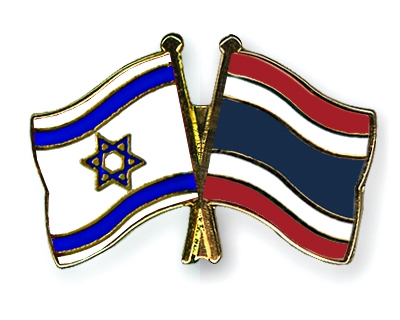UPDATES
Thailand, Israel defence ties highlight Jerusalem’s increasing focus on Asia
June 20, 2012 | Ahron Shapiro

Ties between Israel and Thailand increased last week following a visit to Israel by Thai Defence Minister Sukumpol Suwanatat, which culminated in the signing of an intelligence pact between the two countries.
According to the report in the print edition of Friday’s Bangkok Post, Thai and Israeli defence ministries have signed a non-disclosure agreement over classified information on intelligence, military and security.
“The agreement is part of the two countries’ cooperation on security issues. We also agreed to exchange information on anti-terrorism operations,” Sukumpol told the paper.
According to the story, a Thai military source added that Israeli Defence Minister Ehud Barak offered his mine-clearing and other military technology to the Thai Defence Ministry to help Thailand cope with ongoing violence in the country’s south.
The visit came in the wake of a terror explosion in Bangkok on February 14 which wounded five people. The bombers, reportedly linked to Hezbollah, allegedly intended to attack Israeli diplomats in the city.
In recent years, AIJAC has been campaigning to increase Israeli ties to Asian countries, including Thailand.
In Haaretz last Tuesday, [subscription required] Dan Goldberg interviewed AIJAC Executive Director Dr. Colin Rubenstein as part of an article about new Israeli diplomatic inroads in the Asia-Pacific region, especially, but not limited to, the Pacific island region.
“What [Israel has] to do is devote more resources towards the East and to develop the already solid bases they have there,” Dr Colin Rubenstein [said]…
Rubenstein, who frequently leads high-profile Asian delegations to Israel, said the foreign ministry “has understood the importance of Asia for a while.”
But he added: “Times have now changed. The bottom line is there’s a great diplomatic opportunity and now is the time to ratchet up its presence.”
Goldberg’s article referenced an interview with Israel’s Director General for Asia and the Pacific Ruth Kahanoff from January that appeared in the Jewish Times Asia in March.
Kahanoff told the newspaper that Israel’s new attitude towards Asia represents a fundamental and permanent shift at the highest levels of strategic planning.
Let me say that for too many years Israel looked West. In a way that was natural because in the first decades it was Europe, it was North America, that was the world that we knew. That was where the Jewish communities were, people with what we call the Judaic-Christian values and heritage so there was more communication in that direction, and we could speak the languages. So these areas took our interests for many years.
For too long we did not know how to deal with Asia. We did not pay enough attention. Well, when I say ‘we’ I mean the country as ‘we’ in the Asia Department always paid attention to Asia and for us Asia has always been extremely important as there are a lot of opportunities here. In the present and certainly in the future.
Finally, it is happening. We are looking East. The centre of the world economy is clearly moving in the direction of Asia and you have the biggest populations here and the biggest growth in economies, and this is so when the West, particularly the US, is struggling with its economic difficulties.
The business community will definitely look East, especially now that Asia takes about 20% of the total of Israel’s trade. We have strong belief that in the future the growth will be in Asia.
Not all of Goldberg’s article painted a rosy picture, however. The former editor of the Australian Jewish News identified persistent challenges for promoting Israel in countries like Malaysia, and the need for continued vigilance and cultivation of Israeli relations in Canberra and Wellington – a major focus of AIJAC’s ongoing efforts.
Ahron Shapiro





